A cyst is a fluid filled lump that sits just underneath the skin. They are usually round in shape and often are yellow or white with a small dark plug through which pus can be squeezed out. Cysts are very common and are usually nothing to worry about. They may disappear on their own without any treatment, but it is worth getting your cyst checked by a doctor if you are worried or if the cyst becomes sore or infected.
While cysts are usually nothing to worry about, growths on the skin can be an indication of a more serious health problem, so it is important to get any lumps and bumps checked by a consultant dermatologist to rule out anything that may require further investigation.
Alternative names: Sebaceous cyst, epidermoid cyst, pilar cyst, acne cyst, comedone, nodulocystic acne, steatocystoma multiplex, pilonidal cyst, myxoid cyst, boil, abscess, furuncle.
REQUEST A CALL BACK
Arrange a consultation with one of our expert dermatologists today.
WHAT CAUSES CYSTS?
There are many variants of cyst in the skin and anyone can develop one. You are more likely to get a cyst following puberty, if you have acne or if you have injured the skin, including damaging a hair follicle. Most are caused by the same process as acne, a combination of overactive grease-glands, hormones and bacterial infection, and may be recurrent.
A cyst on the skin is formed when skin cells behave differently to normal. Some of the cells in the upper layer of our skin produce keratin which gives skin its strength and flexibility. These cells usually move to the top of the skin to be shed, however occasionally they actually go deeper into the skin and form a sac which becomes filled with the keratin, forming a thick yellow paste.
Superficial cysts are classed as epidermoid/sebaceous whilst deeper cysts are classed as ‘pilar’. There are many other variants of cyst occurring in the skin.
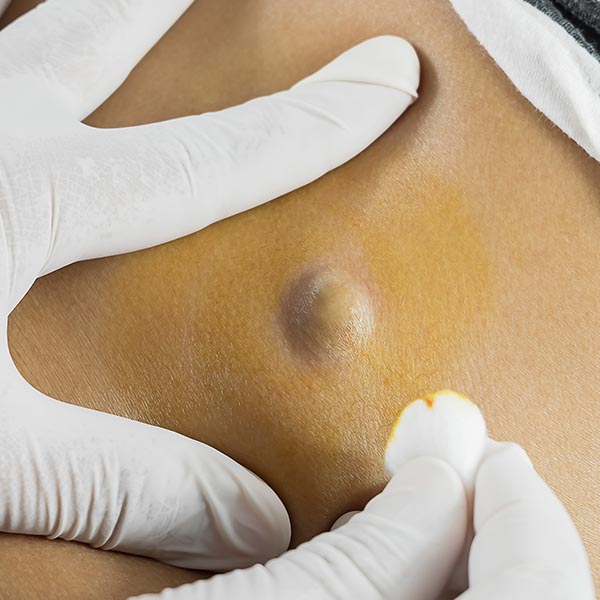
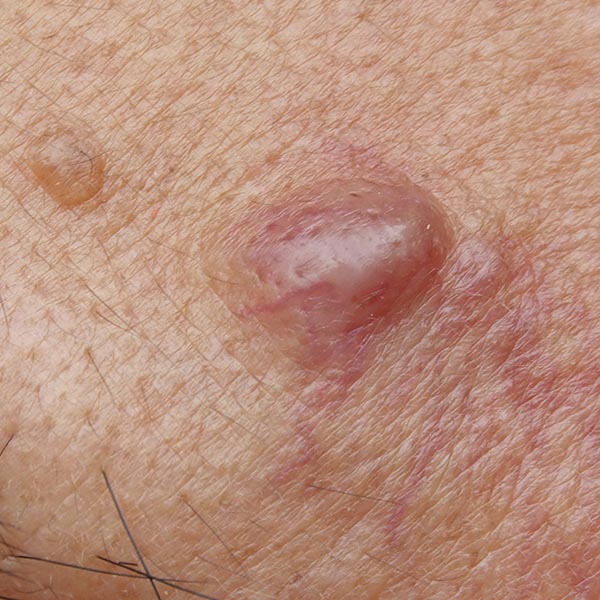
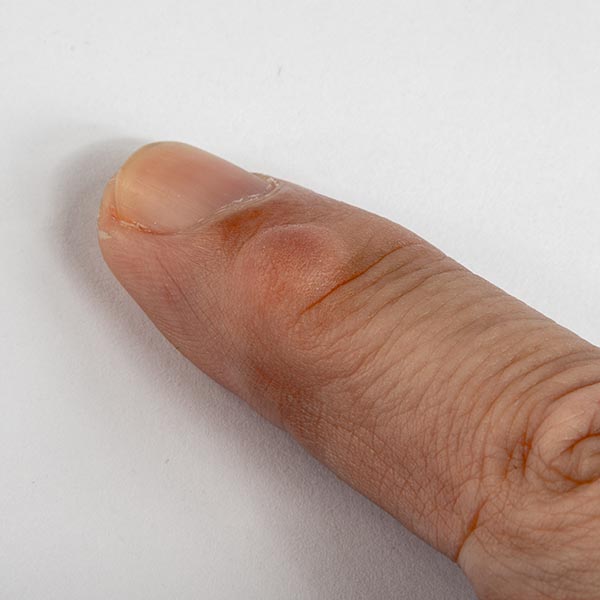
WHAT DO CYSTS LOOK LIKE?
Cysts look different depending in whether they are acutely inflamed/infected or chronic. Acute inflamed cysts look like tender red swellings on the skin, sometimes with a punctum in the centre that ‘leaks’ fluid, sometimes with a white pustular head. Chronic cysts are soft, smooth spherical swellings under the skin (see ‘before’ image). Pilar cysts are often in the scalp and can be quite large, occasionally causing permanent hair loss over the surface skin.
Cysts are generally not a major medical concern but they may swell up causing disfigurement, pain and sometimes discharge their contents. Occasionally they can burst giving rise to sunken scars and scalp cysts can cause hair loss in the area in from which the cyst arises.
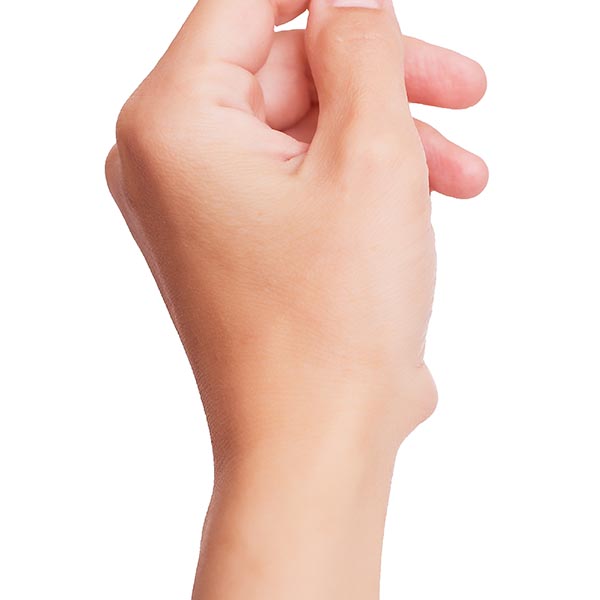
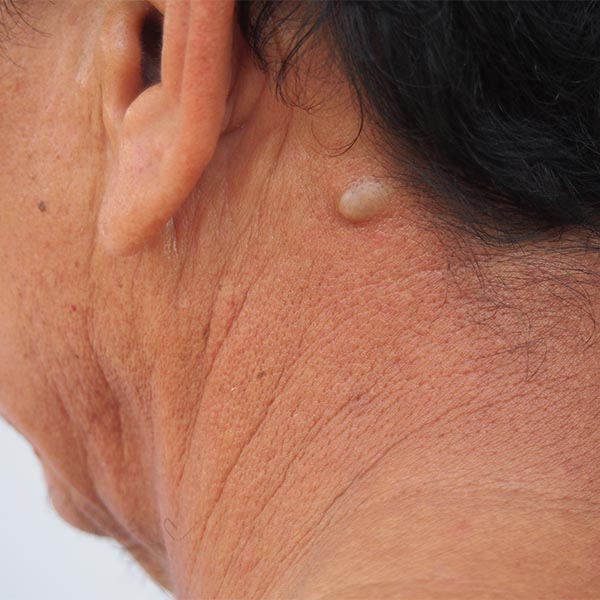
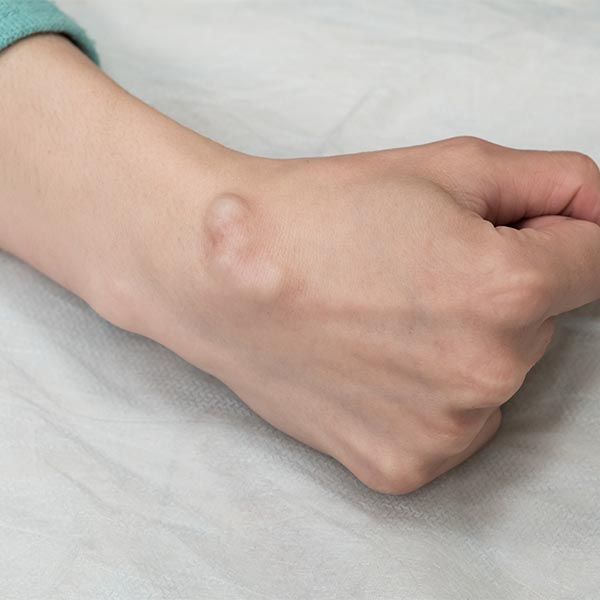
TREATING CYSTS
Inflamed cysts (or acne cysts) tend to respond well to cortisone injections. They shrink and become much less inflamed all within the first 24-48 hours. Larger cysts can be surgically removed by a number of differing techniques. If cysts continue to form, then treatment is the same as for acne with a drug such as oral retinoic acid.
Our Specialist Dermatologists at the Harley Street Dermatology Clinic can offer effective treatment to patients to help treat or improve cysts. See our before and after images showing how surgical treatment can improve the cosmetic appearance of cysts. If cysts are causing you problems, there is no need to suffer further. Get in touch and let one of our consultants treat your condition.
For further information please visit the NHS website or see the British Association of Dermatology Patient leaflet.
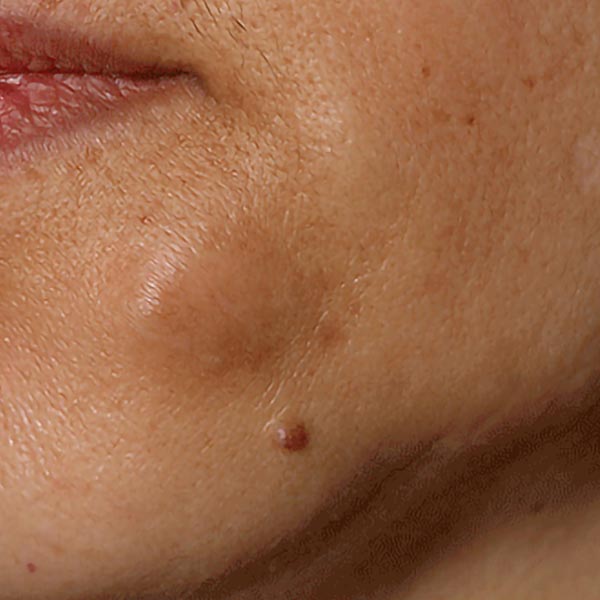
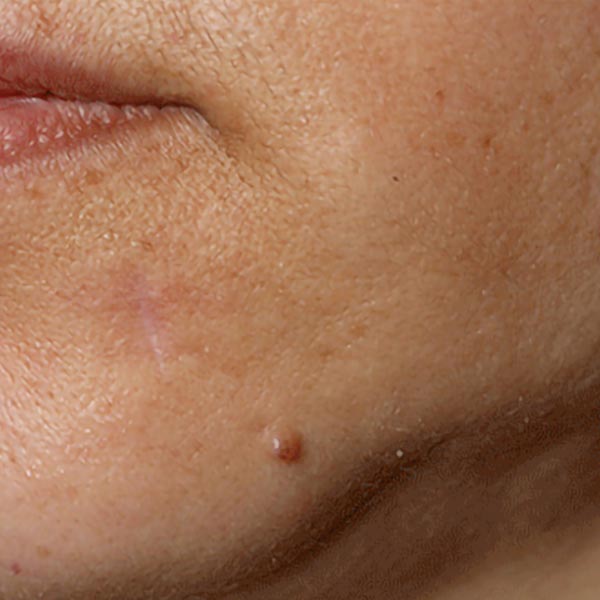
FREQUENTLY ASKED QUESTIONS
What happens if my cyst is infected?
If you have an infected cyst, you may be offered antibiotics. A consultant dermatologist is also able to remove the cyst by cutting the skin and draining the fluid under a local anaesthetic.
Are some cysts dangerous?
Skin cysts are very rarely dangerous, however there are other types of cysts which can be a cause for concern. These include Ovarian cysts and pilonidal cysts.
Are Cysts a cause for concern?
Cysts are generally not a major medical concern, but they may swell up causing disfigurement, pain and every so often discharge their contents. Occasionally they can burst giving rise to sunken scars and scalp cysts can cause hair loss in the area in from which the cyst arises
Is there anything I can do at home to help my cyst?
In some cases, cysts will go away on their own. Holding a warm compress such as a flannel against the cyst can help it to heal and reduce any inflammation you may be experiencing.
You should never try to pop the cyst as this can lead to infection.
If you are worried about a cyst or would like to find out the options to get it removed, arrange an appointment with a consultant dermatologist.
WHY CHOOSE THE HARLEY STREET DERMATOLGY CLINIC?
Having the right dermatologist is important especially when you have a chronic skin condition that will require ongoing treatment. We want you to feel confident that we’re providing you with the best possible care. We also want you to feel as comfortable as possible with your dermatologist.
The Harley Street Dermatology Clinic specialises in conditions affecting the skin, hair and nails. Our goal is to provide all the care that you need when you’re experiencing these kinds of problems. We want to make it easy for you to access the best quality treatment and support in London.
The clinic is conveniently located in Central London, so it’s easy to visit us if you need to see a dermatologist. You will find yourself in a very comfortable and welcoming environment. We have created a relaxing space where you will receive the highest quality of care. We are regulated by the Care Quality Commission, are part of the British Association of Dermatologists and are top rated by patients of Doctify so you can be sure of safe and effective treatment with us.
CONTACT US
Finding Us
The Harley Street Dermatology Clinic
35 Devonshire Place
London
W1G 6JP
The clinic can be accessed by public transport, on foot or by car. There is paid on street parking around the Harley Street district. The nearest tube stations are Regent’s Park and Baker Street, and Marylebone train station is a 15 minute walk away.
Contact Details
Opening Hours
While appointments can be made available outside usual hours in special circumstances, our core hours are:
Monday: 8am - 6pm
Tuesday: 8am - 6pm
Wednesday: 8am - 6pm
Thursday: 8am - 6pm
Friday: 8am - 6pm
Saturday : 10am - 2pm
Sunday: Closed
REQUEST A CALL BACK
Please fill in this form and one of our team will give you a call back to arrange a consultation with one of our expert dermatologists.
